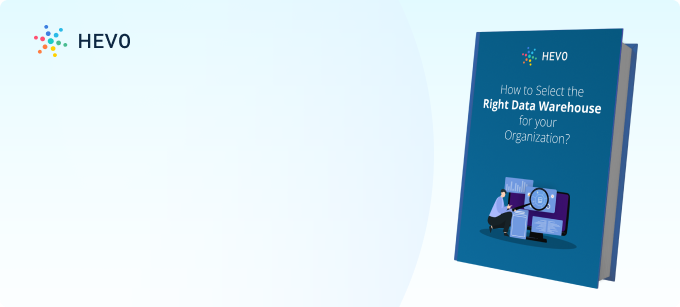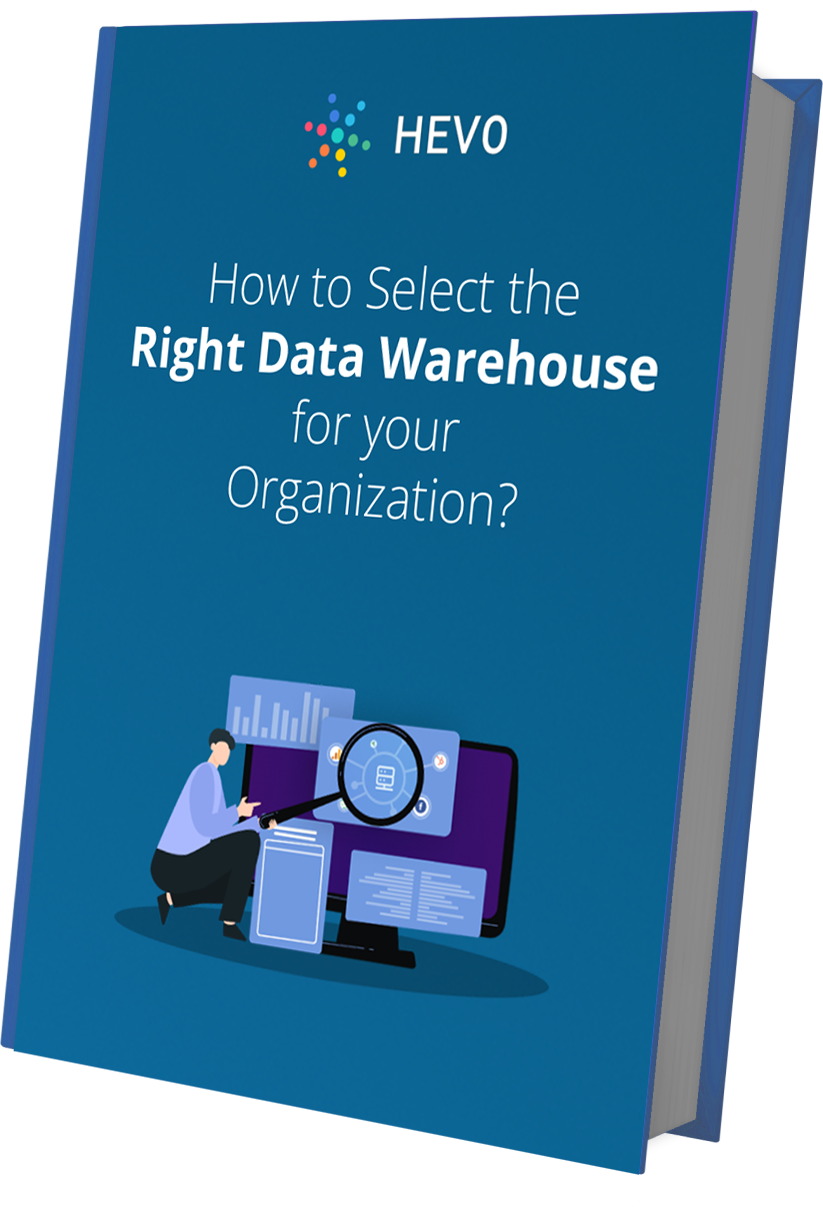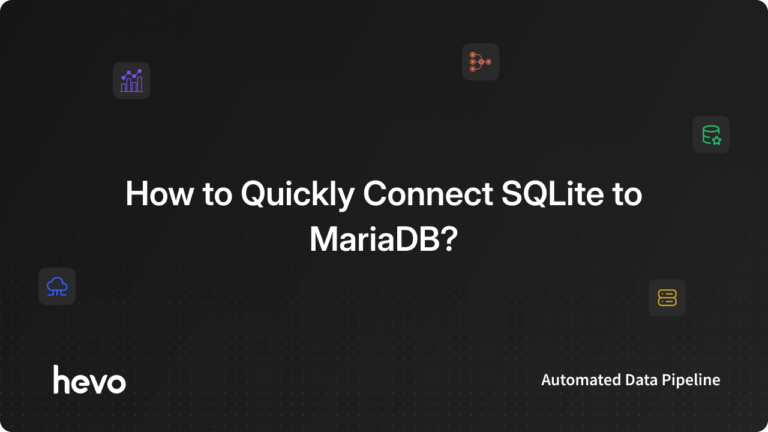The Relational Data Model is the most popular data model among Database Management tools. It organizes data into rows and columns across tables, also known as a Relation. Although there are other types of data models like NoSQL and NewSQL, Relational Database Management Systems (RDBMS) are still considered to be the most popular for data storage worldwide.
There are numerous Relational Database Management Systems (RDBMS) available in the market, including MySQL, PostgreSQL, SQLite, etc. Each database comes with its own set of advantages and disadvantages. After analyzing these factors for each database, you can choose one for your business depending on the use case and data requirements.
Two of the most widely used Open-source Relational Database Management Systems (RDBMS) are SQLite and PostgreSQL. This article will help you understand the various factors that drive the SQLite vs PostgreSQL decision allowing you to make the right choice for your unique business requirements.
Simplify your data integration process with Hevo, a no-code data pipeline platform. Move data seamlessly from 150+ sources to your database or data warehouse in real-time.
Why use Hevo?
- Quick Setup: Create pipelines in minutes without writing a single line of code.
- Real-Time Sync: Streamline data replication with minimal latency.
- Data Transformation: Enrich and transform your data on the fly with Hevo’s intuitive tools.
Streamline your data integration journey with Hevo today!
Get Started with Hevo for FreeTable of Contents
What is SQLite?
SQLite is an Open-source Relational Database Management System (RDBMS). Most Relational Database engines rely on Servers, i.e., they send requests to a Host Server and receive a suitable response. However, SQLite is a Serverless and self-contained Relational Database Management System (RDBMS), also referred to as an Embedded Database. SQLite Database engine operates from within the software that is accessing data.
This way, processes can access the databases directly without the need for intermediation from a Host Server. This also makes it easy to set up SQLite. Any program that needs to use SQLite requires no additional configuration other than access to the disk file.
More information about SQLite can be found here.
What is PostgreSQL?
PostgreSQL is another Open-source Relational Database Management System (RDBMS) built with a focus on extensibility and compliance to standards. It was developed to achieve two goals:
- To allow the addition of new functionality and capabilities.
- To achieve standards compliance.
Besides being a Relational Database, PostgreSQL supports some of the features of Object Databases. Hence, it is an Object-Relational Database. PostgreSQL is also a good database in supporting concurrency.
More information on PostgreSQL can be found here.

Factors that Drive SQLite vs PostgreSQL Decision
Although SQLite and PostgreSQL are free and Open-source Relational Database Management Systems (RDBMS), there are a number of differences between the two that can be considered when deciding which one to use for your business. The key differences that drive the SQLite vs PostgreSQL decision are as follows:
1) Database Model
SQLite is an Embedded DBMS. This means that it is a Serverless DBMS with the ability to run within your applications.
PostgreSQL DBMS implements a Client-Server Model and requires a Database Server to set up and run over a network.
2) Setup Size
SQLite has a smaller size of less than 500KB where PostgreSQL is much larger in size. Its setup files are more than 200MB in size.
3) Supported Data Types
SQLite only supports 5 data types i.e. NULL, BLOB, INTEGER, TEXT, and REAL. The terms “data type” and “storage class” are used interchangeably in SQLite.
On the other hand, PostgreSQL has the ability to store nearly any type of data that you may need to store in your database. This can be INTEGER, VARIABLE CHARACTER, CHARACTER, SERIAL, etc.
4) Portability
SQLite stores its database in one ordinary disk file in any location within the directory. The file is also stored in a cross-platform format, making it easy to copy and move the file. This makes SQLite one of the most portable Relational Database Management Systems (RDBMS).
On the other hand, PostgreSQL only becomes portable when you export the database into a file and then upload it to a Server. This can be a tedious task sometimes.
5) Multiple Access
SQLite doesn’t perform well when it comes to user management. It also lacks the ability to handle simultaneous access by multiple users.
PostgreSQL performs very well in managing users. It has well-defined permission levels for users that determine what operations they can perform in the database. It also has the capacity to support simultaneous access by multiple users.
6) Functionality
SQLite is a simple DBMS, hence, it comes with basic features that are suitable to users of all types.
On the other hand, PostgreSQL is a complex DBMS that comes with a wide variety of features. Hence, users can achieve a lot with PostgreSQL than with SQLite.
7) Speed
SQLite is fast, which can be attributed to the fact that it is a lightweight DBMS with simple operations and minimal design.
PostgreSQL may not be a suitable DBMS for running fast read queries. This can be attributed to its complex design and the fact that it is a heavy DBMS. However, it is a powerful DBMS for performing complex operations.
8) Security Features
SQLite doesn’t come with an Authentication System. Anyone with access to the database is allowed to read and update the database file. This makes it less efficient for the storage of sensitive and private data.
On the other hand, PostgreSQL comes with many security features. It also requires its users to perform complex configurations to make it secure. This makes PostgreSQL a secure DBMS for the storage of sensitive and private data.
Limitations of Using SQLite
The limitations of using SQLite are as follows:
- Concurrency Restrictions: Since SQLite is a Serverless DBMS, it underperforms when it comes to concurrency control. It can only run a single process at a time, hence, it’s not considered to be suitable for multi-user access.
- Poor Access Control: SQLite doesn’t house a proper User Management System. Instead, it relies on the Access Control System of the underlying Operating System.
- Weaker Security: The lack of an Authentication mechanism in SQLite means that database files are accessible to all its users. This leads to poor data security.
Limitations of Using PostgreSQL
The limitations of using PostgreSQL are as follows:
- Memory Usage: PostgreSQL has the problem of memory performance. Since it supports concurrency, it reserves about 10MB of RAM for every new client connection. This means that it requires more RAM so as to support concurrency.
- Complexity: PostgreSQL is a complex DBMS. This means that it may be difficult to use for less experienced database admins.
Conclusion
This article provided you with an in-depth understanding of the various factors that drive the SQLite vs PostgreSQL decision. It also provided you with a list of limitations for each database allowing you to make the right choice for your unique business use case and data requirements. For any information on PostgreSQL Full Text Search, you can visit the following link.
Most businesses today use multiple platforms to carry out their day-to-day operations. As a result, all their data is spread across the databases of these platforms. If a business wishes to perform a common analysis of its data, it would first have to integrate the data from all these databases and store it in a centralized location. Building an in-house data integration solution would be a complex task that would require a high volume of resources. Businesses can instead use existing data integration platforms like Hevo.
You can try Hevo’s 14-day free trial. You can also have a look at the unbeatable pricing that will help you choose the right plan for your business needs!
Share your experience of learning about PostgreSQL vs SQLite in the comments section below!
FAQs
1. Is SQLite better than PostgreSQL?
It depends on the use case. SQLite is lightweight, serverless, and ideal for smaller applications or development. PostgreSQL, on the other hand, is more powerful, scalable, and better suited for large, complex, or enterprise-level applications.
2. When should you not use SQLite?
Avoid SQLite for applications requiring high concurrency, multi-user support, complex queries, or large datasets. It’s not ideal for distributed systems or production environments with significant scaling needs.
3. Is SQLite obsolete?
No, SQLite is not obsolete. It remains widely used for mobile apps, IoT devices, embedded systems, and lightweight applications due to its simplicity, portability, and low overhead.






